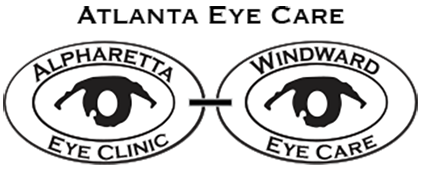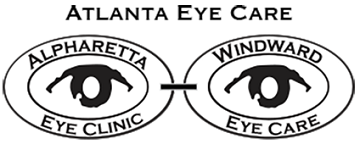About Diabetic Retinopathy
For diabetics, too much sugar in the blood can cut blood supply to the retina nourishing blood vessels. As a result, the eye attempts to grow new blood vessels. But these new blood vessels don’t develop properly and can leak easily. This condition is known as diabetic retinopathy. Keep in mind that the newly developed vessels can additionally impede fluid flow inside the eye and might produce Glaucoma. The condition can develop in anyone who has type 1 or type 2 diabetes. The longer you have diabetes and the less controlled blood sugar is, the more likely you are to develop this complication.
Symptoms of Diabetic Retinopathy To Look For
Diabetic retinopathy usually affects both eyes, but, you might not have symptoms and only mild visions problems in its’ early stages. As the condition progresses, symptoms may include:
- Spots or dark strings floating in your vision, or floaters
- Blurred vision
- Fluctuating vision
- Impaired color vision
- Dark or empty areas in your vision
- Vision loss
Tests and Diagnosis
Diabetics should get an eye exam each year to detect Diabetic Retinopathy as early as possible. Left untreated, it can cause blindness. You should schedule one with any of our optometrists at either Alpharetta Eye Clinic or Windward Eye Care to determine if you are a candidate for Diabetic Retinopathy.
Some of the distinctive features of the condition can’t be seen during a routine eye exam and therefore require a special exam. In the exam, the doctor administers eye drops to dilate the pupils and examines the retina with special lenses and a slit lamp. A Fluorescein Angiography test can accurately reveal any changes in the function and structure of the retina’s blood vessels. In this exam, the doctor injects you with a fluorescent dye and photographs your retina. The dye highlights the blood vessels. He will also test for Cataracts and Glaucoma. These conditions develop more often in individuals with diabetes and can also cause problems with vision.
Diabetic Retinopathy Treatment
Treatment should ideally involve both an ophthalmologist and a medical doctor. Your regular medical doctor will help you control your blood sugar as well as treat other diabetes complications that could ultimately affect your heart and kidney function. On the other hand, your ophthalmologist can treat retinopathy directly with either a laser or a surgical process known as vitrectomy in order to prevent more vascular changes from occurring and help preserve your vision. It’s typical for doctors to suggest these treatments even before you notice any problems with your eyesight. Preventative maintenance is best.
Laser Photocoagulation: is a treatment that works partly by creating small, pain-free retinal burns that effectively seal off leaking blood vessels and also decrease swelling. The extent of the Retinopathy will determine the required number of treatments and burns the doctor makes along with how well the eye responds to the treatment overall. It may take several months to determine whether or not the treatment is actually effective.
Make the right decision for your vision. If you or a member of your family are suffering from an uncomfortable eye condition, give the expert optometrists at Alpharetta Eye Clinic or Windward Eye Care a call. Both of our offices are convenient to those living in Roswell, Johns Creek, Milton, or Cumming.

